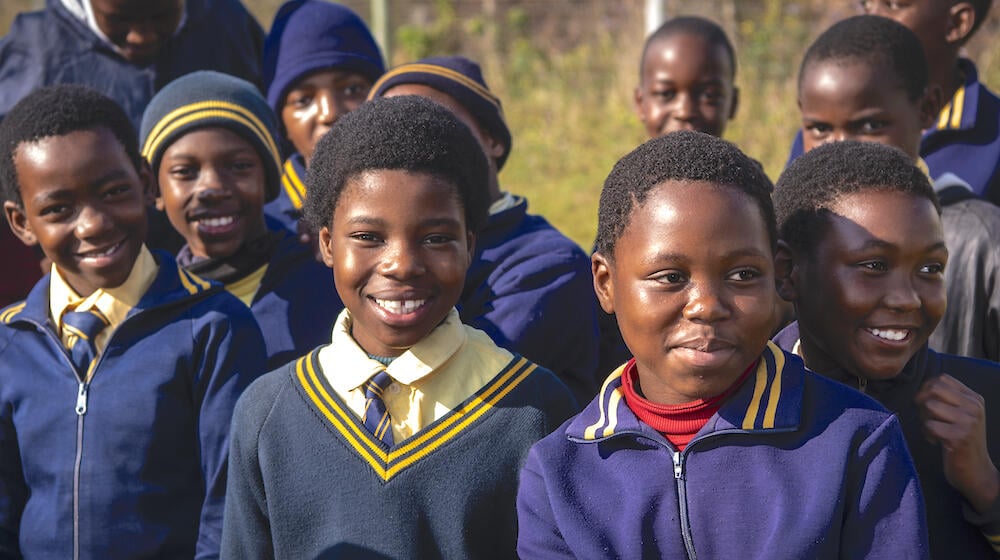DURBAN, South Africa – Nearly half of all pregnancies, totalling 121 million worldwide each year, are unintended, explains the State of World Population 2022 report, released at a high-level event to discuss unintended pregnancies as a neglected crisis, in Durban, South Africa on 23 June.
Titled Seeing the Unseen: The case for action in the neglected crisis of unintended pregnancy, the State of World Population 2022 report highlights unintended pregnancies as a global failure of basic human rights. It reveals the scope and impact of unplanned pregnancy on women, girls, households, societies, countries, and global development.
The South African Government’s Department of Social Development in partnership with UNFPA East and Southern Africa launched the report on Thursday, 23 June, at Zimbali Resort Capital Hotel.
“In South Africa, we talk about children who are not even teenagers getting pregnant. Young girls need to have information on contraceptives, so that they can decide on using them,” said South African Minister of Social Development, Ms. Lindiwe Zulu. “Let us strive to be solution orientated in our endeavours to address unintended pregnancies and their associated challenges. We need to be more vigilant in our efforts of reducing gender inequality by empowering women and girls, and the importance of men and young men in this discussion is very important.”
In Southern Africa, 65 per cent of pregnancies between 2015 and 2019 were unintended, and 36 per cent ended in abortion. The predominant cause of unintended pregnancy is sexual activity without the use of effective contraception, through choice or coercion. In many cases, unintended pregnancy is linked to gender-based violence, including early sexual debut that is non-consensual, and child marriage.
“Across the region, a neglected crisis is silently raging. Unintended pregnancies propel millions of women and girls to drop out of school and workforce, with a lifelong impact on their earnings, health and welfare. Unintended pregnancies cost billions of dollars to the health system,” said Dr. Bannet Ndyanabangi, UNFPA Regional Director for East and Southern Africa.
“Achieving the 2030 Sustainable Development Goals requires us to end unmet need for contraception, achieve gender equality and advance bodily autonomy. Because unintended pregnancies prevent women and girls from realizing their potential and enjoying and exercising their rights,” he said.
KwaZulu-Natal Premier, Sihle Zikalala, noted that “the report confirms the powerful developmental case for investing in reproductive rights to reduce unintended pregnancy. It emphasizes that unintended pregnancies are a reflection of overall social development, and higher levels of choice in reproductive decision-making are part of a positive cycle fuelling other development gains.”
Gender inequality and stalled development drive high rates of unintended pregnancies
Globally, an estimated 257 million women who want to avoid pregnancy are not using safe, modern methods of contraception, and where data is available, nearly a quarter of all women are not able to say no to sex. A range of other key factors also contribute to unintended pregnancies, including the lack of sexual and reproductive health care and information, contraceptive options that don't suit women's bodies or circumstances, and harmful norms and stigma surrounding women controlling their own fertility and bodies. Also contributing are sexual violence and reproductive coercion, judgmental attitudes or shaming in health services, poverty and stalled economic development, and gender inequality.
All of these factors reflect the pressure societies place on women and girls to become mothers. An unintended pregnancy is not necessarily a personal failure and may be due to the lack of autonomy society allows or the value placed on women’s lives.
The high-level hybrid event was attended by the Premier of KwaZulu-Natal, Mr. Sihle Zikalala; the Minister of Social Development, Ms. Lindiwe Zulu; ministers from the East and Southern Africa region; Member of the Executive Council Social Development, Ms. Nonhlanhla Khoza; and the Speaker of the KZN Provincial Legislature, Ms. Nontembeko Boyce.
Access the UNFPA State of World Population report, Seeing the Unseen: The case for action in the neglected crisis of unintended pregnancy
For interviews or more information, please contact:
Ms Lumka Oliphant (DSD) on 083 484-8067 / lumkao@dsd.gov.za
Ms Ziyanda Ngoma (UNFPA) on 0722990868 / ngoma@unfpa.org
ISSUED BY THE NATIONAL DEPARTMENT OF SOCIAL DEVELOPMENT IN PARTNERSHIP WITH UNFPA, THE UNITED NATIONS POPULATION FUND



